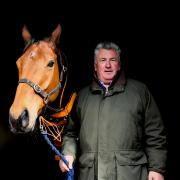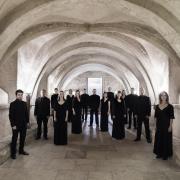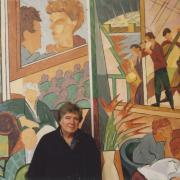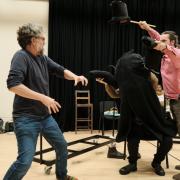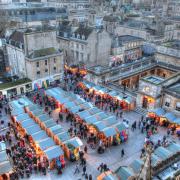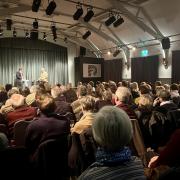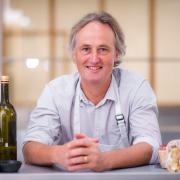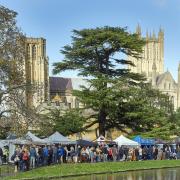Sarah Ford meets our first police and Crime Commissioner Sue Mountstevens and talks to her about the challenges ahead

It’s been a year since the first Police and Crime Commissioners (PCCs) were elected to office, replacing the former police authorities around the country.

At the announcement of her success in the election for Avon and Somerset PCC, Sue Mountstevens declared she would be the voice of the people, reducing crime so that they feel safer in their communities.
Promising to work with the police for better policing, she said she would be a fierce advocate on behalf of victims and ensure that offenders are dealt with robustly.
Convinced that this role should be non-political, Sue stood as an independent, being responsible only to the residents themselves.
Brought up in Somerset (she was the fifth generation to join her family’s bakery chain and rose through the ranks to become its first female director), Sue has spent the past year travelling the length and breadth of her PCC area. Much of it is rural – two thirds of Exmoor lies in Somerset for example – and it includes the urban areas of Bristol, Bath, Taunton and Bridgwater.
Here Sue Mountstevens talks to Somerset Life about the challenges she faces covering this diverse area.
What has your first year in office been like?
It has been busy, very exciting, very rewarding but obviously with any job as big as this it brings great responsibility, which I take very seriously.
The highlights have been being able to introduce our Independent Residents’ Panel which is a body of vetted people from the community who can look at complains against the police. This is the first time that anyone has been able to do that outside the police organisation and it is how we are going to improve the police service.
Residents have always told me that one size policing does not fit all so we have also launched our six police and crime plans to cover the six police districts.
How would you describe the role of the PCC?
It is scrutinising and overseeing the police, holding the Chief Constable to account, delivering a balanced budget. But it’s also how we can prevent crime, making sure that the victim has a much louder voice and also having oversight of the criminal justice system.
What are your main challenges over the next couple of years?
This will be a reduction in the budget, having to find a considerable amount of savings while always making sure that crime continues to reduce and crimes solved continues to increase. Obviously that gets more and more difficult when you have a smaller workforce. When you have to find so many savings and 80 per cent of your budget is people, that doesn’t give you many areas to look elsewhere. But we are changing the model of how we tackle policing in Avon and Somerset and my job is to look under every stone to find whatever savings we can and if that means closing some smaller police stations or ones that are underused then that is what I will do if we can keep more officers on the front line.
How much do you travel around your area?
I spend at least one day a week visiting communities. One thing I’ve been very clear on is my job is to listen to the ‘quiet voices’. Those quiet voices are never going to lobby people like me. They are never going to phone in on a Radio Somerset call in, they are never going to speak up at a public forum, so I will go out and speak to them because that’s how I’m going to hear them. So far I have visited 120 groups such as community groups, youth groups, clubs and community centres.
How long is a typical day for you?
I start work about 7.30am and go through to 10 or 11 at night; there are events nearly every night because I cover such a wide area. But I enjoy going to talk to parish councils, neighbourhood forums, Police and Communities Together (PACT)meetings and young people. This is the 10th largest PCC patch with just under 1.6 million people and 700,000 households. My husband and my three grown up children tease me about the fact they never see me!
I also host public forums with the Chief Constable and local police area Commanders. It is our responsibility to listen to people and I make it clear that you can ask any question you like in those forums because the communities are paying our salaries.
Do you feel people are getting to know who
you are?
I have had more than 4,000 emails and telephone calls from people just wanting to tell me more about how they are interacting with the police, how we can do things better, how they think we do things well. That number of people just goes to show that although there has been some criticism of the low turn out of the PCC election, I think this shows a real hunger to know more about the police service and my job is to make it as open and transparent as possible. But the important thing is they see an improvement in the police service, not that they can name me.
Have you been inspired by people you have met?
Yes, I meet so many people who make a fundamental difference to improving our communities and they get no public recognition and these are the people who need a public pat on the back. These people –such as Neighbourhood Watch co-ordinators or people who are keeping groups of young people together - are the gel of our community. This is why I started the PCC Pride Awards to recognise the silent stars of our communities that achieve great things or go above and beyond what is expected of them.
What do you do in your rare moments of spare time?
I like to run and I did a half marathon about two years ago. I love running, it just gives me time to clear the head. I also like mowing the lawn because no one can get to me, I cannot hear the phone and you don’t have to think. And at the end of it you can see what you’ve done!






